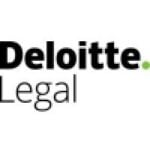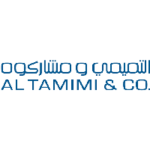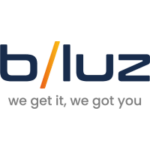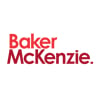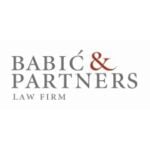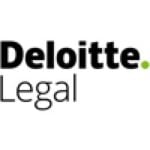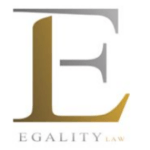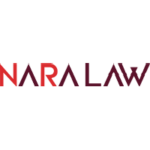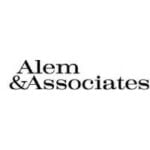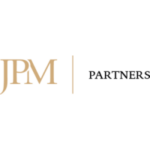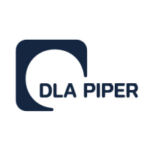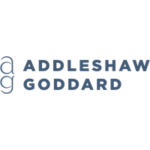-
Is the system of law in your jurisdiction based on civil law, common law or something else?
The Ethiopian legal system operates within a federal structure and is primarily based on civil law, though its procedural rules are influenced by common law. The supreme legal authority is the 1995 Constitution, followed by international treaties, legislation (proclamations, decrees, regulations), administrative directives, and customary laws. Furthermore, interpretations of law by the Federal Supreme Court’s Cassation Division hold binding authority for all courts across Ethiopia.
-
What are the different types of vehicle / legal forms through which people carry on business in your jurisdiction?
The following are types of legal forms through which people carry on business in Ethiopia:
- Sole Proprietorship: Is a form of business owned by a single individual and doesn’t have a distinct legal personality that is separate from the owner.
- General Partnership: This structure comprises partners who bear joint and several liability for the partnership’s obligations.
- Limited Partnership: This entity features both general partners, who maintain full liability, and limited partners, whose liability is restricted to their committed contributions.
- Limited Liability Partnership: This partnership, typically utilised by professionals, limits each partner’s liability to their individual contributions.
- Joint Venture: This structure is established through a confidential agreement among its members, remaining undisclosed to external parties.
- Share Company: This is a corporate structure characterised by a fixed capital, divided into shares, and limited liability. This form of business requires a minimum of five shareholders.
- Private Limited Company: This company requires fully paid-up capital and can have between two and fifty members. Its establishment is contingent upon the full payment of capital and the registration of the memorandum of association in the commercial register.
- One-Person Private Limited Company: This business organisation is characterised by a single member.
- Commercial Representative’s office: is a structure that allows investors seeking to conduct market study and business promotion without engaging in revenue generating work.
-
Can non-domestic entities carry on business directly in your jurisdiction, i.e., without having to incorporate or register an entity?
No, foreign companies are required to incorporate and register a subsidiary, a branch, a project office (those entering the market through an international tender) to conduct business in Ethiopia.
-
Are there are any capital requirements to consider when establishing different entity types?
For a Share Company, a minimum capital of 50,000 Ethiopian Birr is mandated, with each share holding a par value of at least 100 Birr. A Private Limited Company and a One Person Private Limited Company necessitate a minimum capital of 15,000 Ethiopian Birr.
Partnerships do not impose a specific minimum capital requirement. Instead, partners contribute various assets, such as money, property, or skills, with the understanding that these contributions should generally be equal unless otherwise agreed upon, and sufficient for the business’s intended purpose.
However, the following requirements apply to foreign investors seeking to do business in Ethiopia:
For wholly foreign-owned company, a minimum capital requirement is 200,000 USD (for business engaged in architectural or engineering works or related technical consultancy services, technical testing and analysis or in publishing, the minimum requirement is USD 100,000)
For companies jointly owned with a domestic investor, the minimum capital requirement is 150,000 USD (and USD 50,000 if the business falls within the exceptions referred to in the preceding paragraph).
-
How are the different types of vehicle established in your jurisdiction? And which is the most common entity / branch for investors to utilise?
A Sole Proprietorship shall have a commercial registration certificate and a business license from the Ministry of Trade and Regional Integration.
A Private Limited Company (PLC) is set by two to 50 members. It is required to meet a minimum capital requirement of 15,000 ETB, which shall be fully paid in advance and deposited in a blocked bank account, with a minimum par value of 100 ETB. A memorandum of association shall be submitted as part the application for commercial registration and business license.
A Share Company requires fully subscribed capital, with 25% of cash shares paid into a blocked account. A detailed memorandum of association, a promoter-signed prospectus, and auditor verification of formation are mandatory. The company must have at least 50,000 ETB capital, 100 ETB minimum par value per share, and five shareholders. Registration in the commercial register grants legal personality.
A General Partnership is established by two or more individuals. Forming a general partnership involves several key elements: partners must agree to share in the business, and this agreement is formalised in a memorandum of association. Contributions, whether financial, property, or skill-based, are mandatory and typically equal unless otherwise agreed.
A Limited Partnership shall be established on the basis of a memorandum of association specifying general and limited partners, with the firm name including at least two general partners and “Limited Partnership.” General partners hold full liability, mirroring general partnerships, while limited partners’ liability is capped at their contributions. Registration in the commercial register and a business license are required to set up a limited partnership
Limited Liability Partnerships (LLPs) are formed by licensed professionals to provide professional services, with partners’ liability limited to their contributions. Formation requires a memorandum listing each partner’s license and profession, and the firm name must reflect the partnership’s purpose and include “Limited partnership.” Only licensed professionals can be partners, and the general manager must also be a licensed practitioner. Registration in the commercial register is required for the limited liability partnership
A Joint Venture is established on the basis of an agreement between two or more business entities, but it lacks separate legal personality and remains undisclosed to third parties. The standard commercial registration and business license requirements do not apply to joint ventures.
A One-Member Private Limited Company is required to submit a declaration before an authentication authority to set up a separate legal entity with limited liability, registering it commercially and obtaining a business license. The declaration must detail the member, a nominee (who cannot serve multiple one-person companies simultaneously), and their acceptance. A minimum capital of 15,000 ETB is required. In-kind contributions must be detailed, valued by an auditor, and included in the registration.
The most common entity for investors to use is a PLC, it has a relatively simple governance structure and reporting requirements, while a share company is also commonly used
-
How is the entity operated and managed, i.e., directors, officers or others? And how do they make decisions?
The operation and management of business structures in Ethiopia vary depending on the type of organisation:
- General Partnerships are managed by appointed managers, who may or may not be partners, and decisions typically require unanimous consent, although partners can agree to make decisions by a majority vote.
- Limited Partnerships involve general partners with full liability and limited partners with capped liability; management is primarily the responsibility of the general partners. Unless otherwise agreed in the memorandum of association, decisions necessitate the consent of all general partners and a majority of limited partners.
- Limited Liability Partnerships are formed by licensed professionals, with the general manager also required to be a licensed practitioner. Unless provided otherwise in the memorandum of association of the partnership, an amendment to the memorandum of association requires a two-thirds majority vote of the partners to pass. Any other decision may be made by a majority vote of the partners. In addition, A decision regarding a change in the nationality or business purpose of the partnership requires approval by three-quarters (3/4) of the p
- A joint venture is overseen by appointed managers, or if none, all partners assume managerial roles. Management is entrusted to one or more managers, who are not required to be partners themselves. In the absence of appointed managers, all partners assume managerial powers. Furthermore, partners retain the right to actively supervise the manager’s performance, ensuring accountability and alignment with the venture’s objectives.
- In a One-Member Private Limited Company, the sole member enjoys limited liability, provided they’ve fully contributed the capital. A designated nominee ensures continuity in case of the member’s absence or death. The company’s operations are managed by a general manager, which can be members The member effectively holds the authority of a general shareholders’ meeting, with all decisions meticulously recorded in meeting minutes. Any modifications to the company’s declaration must be formally registered in the commercial register.
- Share Companies have a Board of Directors, elected by shareholders and composed of 3-13 members, oversees the company’s strategic direction, financial health, and risk management, with a separation between management and non-management roles. The Board appoints a general manager for day-to-day operations and a secretary for record-keeping and administrative tasks. The Board’s Chairperson, a non-managing shareholder-director, leads the board. Decision-making at the board level requires a majority vote, while shareholder meetings employ varying quorums and voting thresholds depending on the meeting type (ordinary or extraordinary). Shareholders can also establish an optional Supervisory Board to monitor management and ensure compliance.
- Private Limited Companies offer flexibility in their management structure, allowing for either a board of directors or a general manager appointed by the shareholders. When a board is established, it comprises three to seven members, and its operational rules largely mirror those governing share company boards. In the absence of a board, the appointed general manager assumes full authority to act on behalf of the company, focusing on achieving its business objectives. Shareholder decision-making occurs during general meetings, where ordinary resolutions, requiring a simple majority, address routine matters. However, significant decisions, like capital alterations, necessitate extraordinary resolutions, typically demanding a higher voting threshold.
-
Are there general requirements or restrictions relating to the appointment of (a) authorised representatives / directors or (b) shareholders, such as a requirement for a certain number, or local residency or nationality?
An individual can serve as a director in a general partnership unless they are dismissed by the other partners or by a court order. Managers are prohibited from engaging in transactions similar to those carried out by the partnership, whether on behalf of a third party or in their own interest, without the consent of the other partners. They also cannot be a partner with joint and several liabilities in another firm that engages in a similar business. These same rules apply to general partners within limited partnerships. A key restriction in limited partnerships is that limited partners are explicitly prohibited from acting as managers, regardless of any power of attorney granted.
Share companies in Ethiopia are subject to specific regulations concerning their directors and shareholders. A minimum of five shareholders is mandatory. The company’s Board of Directors, elected by shareholders, must consist of three to thirteen members, with a limit of one-third being non-shareholders. Directors are required to possess good moral character and must not have criminal records for specified offenses. They are subject to removal by a general meeting of shareholders at any time. The Board’s Chairperson must be a shareholder-director who is not involved in the company’s daily management. Directors are also bound by conflict-of-interest restrictions, prohibiting them from competing with the company or holding interests that conflict with its objectives. An optional Supervisory Board, comprising three to five shareholder-members, can be established.
Private limited companies in Ethiopia have specific requirements and restrictions regarding their structure and personnel. Shareholders must number between two and fifty, although single-member conversion is permissible. Management can be structured either through a board of directors, comprising three to seven members, or a general manager appointed by the shareholders. If a board is established, its operational rules align with those of share company boards. The company’s memorandum of association dictates the number and powers of directors, and if a board is in place, it appoints the general manager, who cannot be the board’s chairperson. A general manager is mandatory, whether appointed by the shareholders or the board, and may be a shareholder or an external individual.
In one member PLC, specific rules govern the appointment of nominees and managers. A nominee must formally declare their acceptance of the nomination before a document-authenticating authority. Critically, an individual can only serve as a nominee for one single-member company at a time. The company is required to have a general manager, who can either be the sole member or another individual. This general manager assumes the standard powers and duties of a manager in a private limited company, as outlined in the relevant legal code.
There are no specific requirements or restrictions related to local residency or nationality of partners, sole member, the nominee, general managers, shareholders or directors in respect of the business forms described above.
-
Apart from the creation of an entity or establishment, what other possibilities are there for expanding business operations in your jurisdiction? Can one work with trade /commercial agents, resellers and are there any specific rules to be observed?
According to the Commercial Code, businesses face no restrictions on expanding their operations. They are generally free to engage commercial agents and resellers to the extent they operate in compliance with law prohibiting anti-competitive practices. Exclusive distributorship, for instance, is prohibited under Ethiopian law.
-
Are there any corporate governance codes or equivalent for privately owned companies or groups of companies? If so, please provide a summary of the main provisions and how they apply.
The following are the main Corporate Governance Codes:
- The Commercial Code of Ethiopia lays a legal foundation for commercial activities, requiring businesses to keep books and accounts. It outlines the roles and responsibilities of the Board of Directors, emphasising their duty to act in the best interest of the company and its shareholders. This includes overseeing the management, ensuring compliance with laws and regulations, and safeguarding the company’s assets. Moreover, Companies are required to maintain transparency in their operations and disclose relevant information to shareholder This includes financial statements, management reports, and any material changes in the company’s operations. Further, the governance codes protect the rights of shareholders, ensuring they have a say in major decisions, such as mergers, acquisitions, and changes to the company’s structure. Shareholders are also entitled to receive timely and accurate information about the company’s performance.
- National Bank of Ethiopia (NBE) Directive No. SBB/91/2024 applies to all banks operating in Ethiopia. It aims to ensure banks are managed and directed soundly and prudently, balancing risk-taking with stakeholder interests. It defines corporate governance as the structure to direct and manage a bank’s business and affairs to enhance business prosperity and corporate accountability. The directive emphasises corporate culture, ethics, and the integration of sustainability factors in risk management. It also addresses board composition, conflict of interest management, shareholder protection, and required disclosures, with the NBE supervising corporate governance and imposing penalties for non-compliance. The directive states that compliance with it does not relieve a bank from complying with the Commercial Code of Ethiopia or any other relevant laws.
- Directive No. SIB/48/2019 (1st Replacement) applies to all insurers operating in Ethiopia and Ethiopian reinsurers. It defines corporate governance as the structure to direct and manage the business and affairs of an insurer to enhance business prosperity and corporate accountability. The directive addresses board size and composition, general meetings, and nomination and election procedures. It also specifies the responsibilities and authority of the board and chief executive officer, as well as required disclosures. This directive mandates transparency and outlines penalties for non-compliance.
- The Capital Market Service Providers Licensing and Supervision Directive No 980/2024 sets out specific governance related requirements for businesses seeking to engage in capital market service provision.
-
What are the options available when looking to provide the entity with working capital? i.e., capital injection, loans etc.
When providing an entity with working capital, several options exist, including capital injections and loans, each with specific considerations under the New Ethiopian Commercial Code.
Capital can be injected into a business organisation through contributions from partners or shareholders. For instance, A share company can increase its capital by issuing new shares, which may be paid up in cash or in kind. Furthermore, if a private limited company loses three-quarters of its capital, the members can make additional contributions to restore the capital.
A share company may borrow money by issuing debentures if its capital is fully paid-up and it has been in business for at least one year with an approved balance sheet. The amount of debentures issued typically cannot exceed the amount of paid-up capital, although there are exceptions, such as when the company’s immovable property is mortgaged. It is important to note that a company cannot grant its shares before payment as determined by the law and the memorandum of association; it may not make loans to enable third parties to acquire its shares.
-
What are the processes for returning proceeds from entities? i.e., dividends, returns of capital, loans etc.
For share companies and PLCs, the Commercial Code sets out specific methods for distributing value to their owners through dividends, share buybacks, capital reductions, loans, and bonus shares.
Dividends Distribution
Dividends can only be paid to shareholders from the net profits detailed in an approved balance sheet. The general meeting determines the methods of profit distribution. The general meeting sets the date shareholders receive dividends, but this date must be within four months of the profit distribution resolution. From the fixed payment date, a shareholder becomes a company creditor for the dividend amount.
Regulations on Share Buybacks
Share buybacks are permissible under specific conditions to protect shareholder interests and company stability. A company can acquire its own shares from shareholders only when authorised by a shareholder meeting, and the purchase must be funded from the company’s net profits. Additionally, the shares being repurchased must be fully paid up. Once acquired, these shares cannot be disposed of by the directors, and their voting rights are suspended, effectively removing them from circulation. However, these restrictions do not apply when an extraordinary general meeting has decided to repurchase shares as part of a formal capital reduction, indicating a distinct, authorised purpose.
Process of Capital Reductions
Capital reduction is initiated by the board of directors by submitting capital reduction proposals to the auditors at least fifteen days before the extraordinary general meeting intended for approval. The auditors are required to provide a report at this meeting, detailing their opinion on the proposals and the supporting rationale. Once a capital reduction is implemented, it must be officially recorded in the commercial register, announced in a widely circulated newspaper, and published on the company’s website. Capital reduction can be achieved through methods such as reducing the par value of shares or exchanging existing shares for a smaller quantity. Importantly, any capital reduction must uphold the principle of shareholder equality, ensuring that no shareholder is unfairly disadvantaged.
Restrictions on Loans
A company cannot grant its shares before payment as determined by law and the memorandum of association. A company may not grant advances or make loans on its shares.
Conditions for Issuing New Shares
A company must adhere to the provisions related to the formation of share companies when issuing new shares. Existing shareholders have a preferred right to subscribe to newly issued shares in proportion to their existing holdings, unless the memorandum of association stipulates otherwise. Where a company whose capital is not fully paid increases its capital by a new issue of shares to be paid up in cash or convertible debentures, such issue shall be null and void.
-
Are specific voting requirements / percentages required for specific decisions?
The voting requirements or percentages vary depending on the type of the company (Share Company (SC) or private limited company (PLC), meeting or resolution (general or extraordinary meeting or resolution), and the memorandum of association. A simple majority is required to pass ordinary resolutions (passed in ordinary meetings). These cover matters like approving financial statements, appointing directors, appointing managers, etc. The vote of shareholders representing more than 50% of the capital of the company present in the ordinary meeting is sufficient to pass a resolution in such cases.
The quorum of ordinary meetings for SCs and PLCs differs. For SCs, the required quorum is the attendance of shareholders representing 25% of the capital of the company. Where such quorum is not met in the first meeting and a second meeting is called, there is no regard for the number of shares represented and decisions are passed by a simple majority of shareholders present. For PLCs, the required quorum is the attendance of shareholders representing more than 50% of the capital of the company. When a second meeting is called, decisions are passed by a simple majority of shareholders present regardless of the number of shares represented and.
A higher threshold of quorum and majority is required in extraordinary resolutions of companies. A unanimous vote of all shareholders is required to change the nationality of the company and to increase capital by increasing the par value of existing shares. A vote of shareholders representing 75% of the capital is required to increase capital using profits or reserve funds to be distributed to shareholders. A similar vote is also required to amend the memorandum of association (MA) unless a higher requirement is provided by the MA.
-
Are shareholders authorised to issue binding instructions to the management? Are these rules the same for all entities? What are the consequences and limitations?
Yes, shareholders, as owners of the company, are authorised to issue binding instructions to the management through specific mechanisms. These binding instructions are issued through general and extraordinary shareholder meetings. Every company is duty bound to hold at least one general annual shareholders’ meeting. There are also situations where convening an extraordinary meeting of shareholders are mandatory like capital increase or amendment of the memorandum of association. The instructions or resolutions include approval of annual financial statements, appointment and removal of directors, dividend distribution, deciding on major corporate issues (such as mergers, acquisitions, dissolution, etc), appointment of external auditor, and on all questions arising out of the accounts for the past financial year. Decisions of the shareholders are recorded, and registered, authenticated and deposited at the Documents Authentication and Registration Services and the Ministry of Trade and Regional Integration or the Investment Commission.
The consequences of non-adherence to the instructions of shareholders entails removal form posts, legal suits for mismanagement and damage claims. Managers are liable to the shareholders and the company for the damage they caused due to breach of duties including transgressions of the instructions of shareholders. Managers may also be liable to pay the company’s debts or part of it in case of bankruptcy where the assets of the company are inadequate.
The limitation on the authority of the shareholders is that they cannot engage in the conduct of the company including operational decisions on a day-to-day basis. Further, any decision of shareholders must comply with the mandatory requirements of the law and the memorandum of association.
-
What are the core employment law protection rules in your country (e.g., discrimination, minimum wage, dismissal etc.)?
The core protections afforded to employees under Ethiopian Labour Law include:
Non-Discrimination: An employer shall not discriminate between workers based on race, sex, religion, political outlook, HIV/AIDS, disablement or any other irrelevant grounds. This rule is applicable in employment, remuneration and termination.
Working Hours: The maximum working hours are 8 hours a day or 48 hours a week. Exceeding these limits entails penalty of 5,000ETB to 30,000ETB depending on the repetition. If such transgression is made for more than three times it may result in the closure of the undertaking.
Leaves: An employee is entitled to several types of leaves with pay:
- Annual leave of 16 working days for the first year of service and an additional one day for two years of service;
- Maternity leave of 120 days (30 days prenatal and 90 postnatal);
- Paternity leave of 3 consecutive working days;
- Sick leave for up to 6 months (first month with full pay, next two months with half pay and the next three months without pay);
- Social events leave for 3 consecutive working days for social events (marriage of the employee, death of close relatives);
- Union leave as determined by the collective agreement;
- Special purpose leave (to appear before tribunals, to vote, and for training as determined by the collective agreement); and
- special family events leave for 5 consecutive working days.
Termination: A contract of employment can only be terminated by the employer due to serious misconduct of the employee, the employee’s inability to do the task, or due to the organisational or operational requirements of the undertaking.
An Employee can terminate his contract of employment without notice due to serious misconduct of the employer such as sexual harassment, criminal acts, imminent danger at work not attended by the employer, or failure by the employer to meet his obligations. An Employee is also entitled to terminate his contract for no reason by serving 30 days prior notice.
Social Security: an employer is obliged to contribute 11% of the salary of the employee into the social security (pension Scheme) of the employee.
Child Labour: The minimum working age in Ethiopia is 15 years. Accordingly, it is prohibited to employ a person who is less than 15 years of age. Further, young workers (15-18 years) must not be assigned on jobs that endanger their lives or health, on overtime work, weekly rest days and holidays. The maximum weekly working hours for young employees is 7 hours a day. However, for apprenticeship, children who attained 14 years of age can be employed.
Dispute Resolution: A Labour dispute can be entertained by a Conciliator appointed by the Ministry of Labour and Skills (MoLS) up on application by any of the parties. The Conciliator entertains most labour issues and aims to bring about a negotiated settlement. The Labour Relations Board entertains cases not resolved by the Conciliator and referred to it. A specialised labour bench, both at first instance and appellate levels, is also established by the law.
Minimum Wage: Unlike in many jurisdictions, minimum wage is not fixed both in the private and the public sectors in Ethiopia. Salary is thus freely determined by the parties.
-
On what basis can an employee be dismissed in your country, what process must be followed and what are the associated costs? Does this differ for collective dismissals and if so, how?
An employee can be dismissed due to serious misconduct, inability to do the task, or the organisational or operational requirements of the undertaking. Serious misconduct include fraud, theft, assault, lateness to work for 8 days in six months, absence from work for 5 days in six months while being notified, poor performance, conviction, gross negligence, etc. which constitute ground for termination without prior notice. Some grounds like permanent disability; manifest loss of capacity to do his task; inability to carry out his task (due to health, disability), unwillingness to move to a different locality, cancellation of the employee’s post for good cause, etc. constitute ground for termination with a notice of one to three months depending on the years of service of the employee.
If either the ground for or the procedure of termination is unlawful, the employee can be reinstated, or the employer must pay severance payment of 1 to 12 months’ salary based on the years of service, a compensation of 6 months’ salary and salary for the notice period, among others.
Collective dismissals due to the organisational or operational requirements of the undertaking are lawful. If the workers’ activities are permanently ceased, the volume of work or profit of the undertaking falls due to demand fall in its products or services, the employer alters the work method or introduces new technology, employees affected by these events can be dismissed. If such dismal affects 10% or more its employees, it must consult workers union or representative, strive to retain senior and productive workers, inform the MoLS, and provide a flat two-month prior notice. Such employees are also entitled to two months’ salary in addition to severance pay indicated above.
-
Does your jurisdiction have a system of employee representation / participation (e.g., works councils, co-determined supervisory boards, trade unions etc.)? Are there entities which are exempt from the corresponding regulations?
The Ethiopian Labour Law allows the establishment of a trade union when an undertaking has 10 or more employees provided that the members of the union should not be less than 10. Employees in similar activities but in different undertakings which have less than 10 employees can form a general trade union. Trade unions may form Trade Union Federation, and federations may form confederations. Trade Unions represent members in collective bargaining, and labour disputes, observe conditions of work, protect the rights of members, etc.
Managerial employees are excluded from union membership. Further, exercising some union rights like striking and lock out is not allowed for workers in essential public service undertakings such as aviation, electric power and water supply; urban light rail transport; Hospitals, Clinics, dispensaries and pharmacies; fire brigade; and telecommunication.
-
Is there a system governing anti-bribery or anti-corruption or similar? Does this system extend to nondomestic constellations, i.e., have extraterritorial reach?
Ethiopia introduced the first special anti-corruption legislation in 2001 with the adoption of Federal Ethics and Anti-Corruption Commission Establishment Proclamation No. 235/2001. This law established the Federal Ethics and Anti-Corruption Commission (FEACC). Special substantive anti-corruption law, Corruption Crimes Proclamation No. 881/2015, and a special anti-corruption procedure and evidence law, the Revised Special Anti-Corruption Procedure and Rules of Evidence (Amendment) Proclamation No. 882/2015 were adopted later. These laws criminalise bribery or corruption, provide special procedures and rules of evidence for investigation and trial of corruption offences, and empower the FEACC to raise awareness about corruption, investigate and prosecute corruption offences. The power of FEACC to investigate and prosecute corruption offenses was rescinded by a recent amendment, the Revised FEACC Establishment Proclamation No. 1236/2021. Such powers are now vested in the Public Prosecutor.
In addition, the Criminal Code of 2004 criminalise bribery, embezzlement, abuse of power, illicit enrichment, and so on.
The Corruption Crimes Proclamation No. 881/2015 imposes severe penalty on bribery offenses, ranging from one-year simple imprisonment to rigorous imprisonment of up to 25 years and a fine of up to 200,000 Birr.
Extraterritorial reach: Both the Corruption Crimes Proclamation No. 881/2015 and the Criminal Code have extraterritorial reach. Bribing foreign public officials or employees or of international organisations, or taking a bribe from foreign State, person or organisation including a transnational corporation is criminalised, entailing the same punishments as indicated above.
-
What, if any, are the laws relating to economic crime? If such laws exist, is there an obligation to report economic crimes to the relevant authorities?
Ethiopia has several laws relating to economic crime. The major ones include:
- Asset Recovery Proclamation (adopted by the Parliament in its 14th regular session held on 09 January 2025, yet to be published in the Federal Negarit Gazette)1;
- Prevention and Suppression of Money Laundering and Financing of Terrorism Proclamation No. 780/2013;
- Corruption Crimes Proclamation No. 881/2015;
- Prevention and Suppression of the Financing of the Proliferation of Weapons of Mass Destruction Proclamation No.1132/2019;
- Disclosure and Registration of Assets Proclamation No.668 /2010;
- Order of the Council of Ministers to Freeze Finances Used to Support Proliferation of Weapons of Mass Destruction Issued Pursuant to Article 9 of Proclamation No. 1132/2019;
- Tax Administration Proclamation No. 979/2016;
- Customs Proclamation No. 859/2014; and
- The Criminal Code Proclamation No.414/2004.
An obligation to report suspicions of economic crimes to the relevant bodies is provided under the AML Proclamation. Financial institutions, designated non-financial businesses, and professions have such duty. Such bodies are duty bound to report to the Financial Intelligence Services (FIS) their reasonable suspicion that funds or property are the proceeds of crime, or are related or linked to, or are to be used for financing of terrorism. Under the AML law, confidentiality cannot be mentioned as defence for failure to report such offences.
The Anti-Corruption laws also impose a duty of disclosure to the authorities on everyone who has information regarding corruption offenses. The only exception to such duty is the duty of confidentiality.
Footnote(s):
1 This proclamation repealed many of the proclamations mentioned here.
-
How is money laundering and terrorist financing regulated in your jurisdiction?
Ethiopia has comprehensive legal framework on the prevention of money laundering and terrorist financing. The primarily legislation is the Prevention and Suppression of Money Laundering and Financing of Terrorism Proclamation No. 780/2013. The law criminalises money laundering and terrorist financing, outlines preventive measures, and empowers the FIS as the responsible organ to lead the fight against those crimes. Money laundering entails rigorous imprisonment of 7–15 years and fine up to ETB 100,000, while terrorist financing entails up to life imprisonment and confiscation of property.
The other key legislations include Anti-Corruption Proclamation No 881/2015, the 2004 Criminal Code, the Banking Proclamation and other financial laws, the Customs Proclamation, The Federal Police Proclamation, the Public Servants Asset Declarations Proclamation, and the Financial Intelligence Centre Establishment Regulation (as amended), the Asset Recovery Proclamation, and the Procedure of Freezing of Terrorist’s Assets Regulation No. 306/2014.
These laws require customer due diligence (mandatory identification of customers, beneficial owners, and ongoing monitoring of high-risk accounts), reporting (of suspicious transactions and large cash transactions exceeding 1million ETB to FIS), and retention of records for at least five years. These obligations apply not only to financial institutions but also designated non-financial institutions as well as professions. In addition to the FIS, NBE also plays important role in enforcing the AML and anti-terrorist financing at financial institutions. The Federal Police and the Attorney General are also important institutions for the investigations and prosecution of such offense.
-
Are there rules regulating compliance in the supply chain (for example comparable to the UK Modern Slavery Act, the Dutch wet kinderarbeid, the French loi de vigilance)?
As discussed in section 14 above, the Ethiopian Labor Law prohibits employing children below 15 years of age, the exception being employing children who attained 14 years of age for apprenticeship. It also has provisions on occupational safety, working hours and days for young workers. Further, the law imposes a duty on employers to respect the dignity of workers, to take necessary occupational safety and health measures and to adhere to the standards and directives.
The Prevention and Suppression of Trafficking in Persons and Smuggling of Persons Proclamation considers causing a child to work contrary to these restrictions as labour exploitation of children. The law also prohibits trafficking in and smuggling in persons.
Aside from these protections which directly apply to the employer, Ethiopia does not have a specific legislation comparable to UK Modern Slavery Act, the Dutch Child Labor Due Diligence Law, or the French Duty of Vigilance Law requiring businesses to perform human rights due diligence in their supply chains.
-
Please describe the requirements to prepare, audit, approve and disclose annual accounts / annual financial statements in your jurisdiction.
A reporting entity is required to submit annual audited financial statements to the Accounting and Auditing Board of Ethiopia (AABE) within four months from the end of their fiscal year. These entities include companies like banks, insurers enterprises and other institutions. Financial statements must be prepared in accordance with the IFRS standards. For financial statements or audit reports to be acceptable, it shall be prepared by professionals of the reporting entity or by contracting external professionals or audit firms registered by AABE.
Financial statements to be sent to AABE must first pass through the various organs of approval including the AGM. A maximum of four original copies of audited financial statements approved by the management and each page sealed by the Company and Audit Firm must then be submitted.
Public companies have also a duty to publish their balance sheet on their website and in a newspaper of wider circulation.
If the reporting entity is incorporated abroad where the law of that country is substantially the same, the financial statements prepared abroad is taken as to comply the requirements of Ethiopian law.
Failure to submit annual audited financial statements to the AABE entails a penalty of 200 ETB and 100 ETB for each day of delay for the company and the Director respectively for up to three months. If the failure to submit extends beyond three months, it entails criminal liability, punishable by simple imprisonment of up to two years and/or a fine of 20,000 ETB.
-
Please detail any corporate / company secretarial annual compliance requirements?
There are several corporate or company secretarial annual compliance requirements:
Tax compliance: Businesses are required to file their annual income tax declarations within four months from the end of the tax year for Category “A” (large taxpayers) and within two months for Category “B” (medium) taxpayers, and within a month for Category “C” (small) taxpayers. Tax payment is due in the same period as the filing.
In addition, business entities have provisional tax declaration obligation concerning withholding tax, which must be paid within 30 days from the end of the month the withholding income was paid.
VAT returns, if the company is VAT-registered, must be filed before the last day of the calendar month following the end of the accounting period which is recently made to be monthly from a previous quarterly. The due date for VAT payment is the due date for VAT return filing. However, VAT payable on a taxable import is due at the time of the import
Failure to file returns and/or pay tax within the due date entails serious penalty which may reach up to 25% of the unpaid tax (in case of late filing) or up to the amount of unpaid tax (in case of late payment).
Renewal of Business License or Investment Permit: A business license must be renewed annually. The license renewal period is from 08 July to 08 January each year per Ethiopian Calendar. A similar period is given for businesses who registered a different calendar. Businesses who fail to renew within the above period are given an extended period of renewal from 09 January to 07 July each year. However, renewal in this period entails fine, ranging from 2,500ETB to 10,000ETB (2,500ETB for the month of January and 1,500ETB for each month of subsequent delay). Failure to renew within this period results in the cancelation of the business license.
Likewise, an investor must renew his investment permit annually until the investor commences marketing his products or services and obtains a business license after which investment permit renewal is no longer necessary.
Report and publication of Audited financial statements: Public (share) companies and PLCs who have 10 or more shareholders or whose assets exceed 10 million ETB are required to have external auditors. Audited financial statements must be presented at the AGM and a summary of it is published in the annual report of the company.
Public companies (SCs) are required to submit detailed inventory of the properties of the company, balance sheet, profit and loss account and the directors` report to the auditors, and the Ministry of Trade and Regional Integration (MoTRI) at least 45 days before the notices calling the AGM are dispatched. Further, the approved balance sheet and an extract of the minutes of approval by the AGM must be sent to MoTRI and posted on the company`s website within thirty days of approval.
Any investor, including subsidiaries and branches of foreign companies, issued with an investment permit, is obliged to submit a quarterly progress report on the implementation of its investment project to the Ethiopian Investment Commission (EIC). Investors are also bound to furnish such information whenever requested by the relevant authority
Annual General Meeting (AGM): Companies (SCs & PLCs) are obliged to conduct at least one AGM of shareholders. The AGM is empowered to approve important matters like financial statements, profit sharing, appointment and remuneration of auditors and directors, make critical corporate decisions, give directions regarding the management of the company
Sector-Specific Compliance: Financial institutions (banks, insurances and micro finance institutions) have added responsibilities due to the importance of the sector to the national economy. The National Bank of Ethiopia (NBE) oversees these bodies. Banks have the duty to submit an annual external audit report to the NBE; submit dully signed financial statements within two weeks after the AGM of shareholders; publish balance sheet, profit and loss accounts in a newspaper of wide circulation and in its website; and exhibit last audited balance sheet, profit and loss account in conspicuous places in its place of business.
Employment Compliance: Business entities who employ foreign nationals must make sure that their work and residence permits are renewed annually.
-
Is there a requirement for annual meetings of shareholders, or other stakeholders, to be held? If so, what matters need to be considered and approved at the annual shareholder meeting?
Both public (share) and private companies are required to hold at least one annual meeting of shareholders. Such meetings must be conducted within 4 months of the end of each fiscal year and in certain cases with the permission of the relevant body, within 6 months. The matters that must be considered and approved at the annual shareholders’ meetings include annual financial statements (from management and auditors), profit sharing, appointment of auditors, appointment of directors, determination of the benefits of directors and auditors, and any other matter of concern for the company.
-
Are there any reporting / notification / disclosure requirements on beneficial ownership / ultimate beneficial owners (UBO) of entities? If yes, please briefly describe these requirements.
Pursuant to the Anti-Money Laundering (AML) Proclamation, all legal persons established in Ethiopia are obliged to maintain adequate, accurate and current information on their beneficial owners and control structure. Such entities are also duty bound to give access to such information in a timely fashion, up on request, to the competent authority. Currently, the authority in charge of accessing information on beneficial ownership is the Financial Intelligence Services (FIS
Financial institutions or designated non-financial businesses or professions are further obliged to carry out customer due diligence measures. These measures include identifying the beneficial owners and taking all reasonable measures to verify the identities of the beneficial owners.
In Ethiopia, aside from a definition given to beneficial ownership in the AML law, the yardsticks for beneficial ownership are not clearly stipulated. A “beneficial owner” is defined as “any natural person who ultimately owns or controls a customer or an account, the person on whose behalf a transaction is being conducted, or the person who ultimately exercises effective control over a legal person or arrangement.”
-
What main taxes are businesses subject to in your jurisdiction, and on what are they levied (usually profits), and at what rate?
The main taxes businesses are subject to in Ethiopia are the following:
Corporate Income Tax: This is a tax levied on the annual gross profit (revenue minus deductibles) earned by businesses. The standard rate of corporate income tax is 30%. The corporate income tax rate is applicable on all types of businesses and branches and project offices of foreign investors.
Resident companies are taxed on their worldwide income whereas non-resident companies are taxed only on their Ethiopian sourced income.
Value Added Tax (VAT): VAT is a tax imposed on the supply of taxable goods and services, made in Ethiopia or imported. It is imposed on a taxable supply of goods or services made by a registered person in Ethiopia; the importation of taxable goods and taxable services; and reverse charged supply made to a registered person, Government entity or large unregistered person. The mandatory VAT registration threshold is an annual turnover of 2 million Birr while the voluntary VAT registration threshold is 1 million Birr.
The standard VAT rate is 15%. However, the law recognises zero-rated supplies, exempt supplies and imports. The VAT payment period is 30 days from the end of the transaction month.
Turnover Tax (TOT): TOT is a tax imposed on persons not registered for VAT. It is applicable to small taxpayers who do not meet the VAT registration threshold of turnover of 2,000,000 ETB per year.
TOT tax rates are 2% on goods sold locally, and for services: 2% on contractors, grain mills, tractors and combine harvesters, and 10% on others.
Withholding Tax (WHT): Businesses are required to deduct withholding tax on domestic transactions at a rate of 2% of the value of the transaction and remit to the tax authority monthly. The threshold subject to withholding tax is 10,000 ETB for supply of goods and 3,000 ETB for services. The withholding tax rate on suppliers that fail to provide a TIN and valid trade license is 30%. The amount of tax withheld is deductible from the tax payable by the supplier at the end of the year.
In addition, businesses are required to withhold tax from a range of other payments: dividend, interest, loyalties, savings deposit, rent, repatriation of profits, management and technical fees, etc. which range from 2% to 15%.
Ethiopia has signed double taxation treaties with several countries which determine the rate of withholding tax for investors from those counties, which usually lowers the rates.
Customs Duty: Is a duty levied and collected on imported goods. Regular customs tariff ranges from 0%–35% depending on the nature of goods imported, the value of the goods and origin. The rate for essential goods like pharmaceuticals and educational materials is 0% while it is 35% for luxury items such as cosmetics and high-end electronics and other items. Further, special customs tariff applicable to goods produced in and imported from the Common Market for Eastern and Southern Africa (COMESA) member countries is 10% less.
Excise Tax: Excise tax is imposed on excisable goods manufactured in Ethiopia, excisable goods imported into Ethiopia, and excisable services supplied in Ethiopia. It is imposed on selected goods which are Luxury goods, basic goods that are inelastic demand, and goods that are hazardous to health and are a cause of social problems.
The rates of excise duty range from 5% to 500%. The highest rates are levied on motor vehicles, particularly used ones. Perfume and cosmetics products are chargeable at 100% while alcohol, human hairs and wigs are chargeable at 40%.
Excise tax on taxable imports is paid at the time of importation, on locally produced good, it is paid within 30 days after the goods are cleared from the manufacturing, and for services, it is payable within 30 days of the next month.
Property Tax: is a new tax (introduced in 2025) imposed on real estate properties (land and buildings) in urban areas. It is calculated based on 25% of the value of the property. The tax rates range from 0.2% to 0.1% for land and 0.1% to 1% for buildings. The rates are to be implemented gradually beginning from the lower rates (0.2% for land and 0.1% for buildings) to reach at the higher rate within four years (0.1% for land and 1% for buildings
The tax rates and the taxable percentages can be adjusted by the Ministry of Finance
Sur-tax: Goods imported into Ethiopia (with a few exceptions) are subject to sur-tax at a rate of 10%. The tax base is the aggregate of the CIF (cost, insurance and freight) value, customs duty, VAT, and excise duty.
Payroll Tax: Business are required to pay to the Pension Fund for employees employed for not less than 45 days for a definite or indefinite period or a piece of work, including managerial employees. This does not include employees engaged in cotton collection, sugar cane cutting, and such other similar works regularly repeated in the year. The payment (contribution) by businesses into the Pension Fund is 11% of the salary of the employee and 7% by the employee.
Capital Gains Tax: See the response to question 28 below.
-
Are there any particular incentive regimes that make your jurisdiction attractive to businesses from a tax perspective (e.g. tax holidays, incentive regimes, employee schemes, or other?)
There are several tax incentives regimes for businesses in Ethiopia. The major ones include the following:
Custom Duty Exemptions: New investments and expansion projects in eligible sectors are given:
- 100% exemption from the payment of customs duties and other taxes on imports of all capital goods, such as plant, machinery and equipment and construction materials, and
- Exemption of spare parts worth up to 15% of the total value of the imported investment capital goods.
Duty free importation is indefinitely permitted for investment in manufacturing and agriculture, and for five years for investment is in other eligible areas. An investor entitled to a duty-free privilege who buys capital goods or construction materials from local manufacturing industries is entitled for refund of the customs duty paid for raw materials or components used as inputs to produce such goods. Further, investment capital goods imported in such manners may be transferred to another investor enjoying similar privileges
Income Tax holidays: Investors engaged in eligible sectors (manufacturing; agribusiness; generation, transmission and supply of electrical energy; and ICT) are entitled to income tax holidays. The exemption period ranges from 1 and 9 years, depending on the specific eligible sector and the location of the investment. Investment outside of large cities and in areas where infrastructure is less developed is rewarded with longer tax holidays. In addition, investment in such areas is entitled to an income tax deduction of 30% for three consecutive years after the expiry of the specified income tax exemption period.
An investor who expands or upgrades his existing investment by at least 50% of its production or service capacity or introduces a new production or service line is entitled to 100% income tax exemption for the existing investment for the same period as the initial one. Likewise, an investor who export at least 60% of its products or services, or supply these to an exporter is exempted from the payment of income tax for an additional 2 years.
Loss Carry forward: Businesses that suffer losses during the income tax exemption period can carry forward such losses, following the expiration of the income tax exemption period, for half of the tax exemption period. But any loss incurred during such a period is not allowed to carry forward for more than five income tax periods.
Export Incentives: Except for a few products (semi-processed hides and skins), no export tax is levied on Ethiopian export products.
Duty Drawback Scheme: It offers investors an exemption from the payment of customs duties and other taxes levied on imported and locally purchased raw materials used in the production of export goods. Duties and other taxes paid are drawn back 100% at the time of the export of the finished goods.
-
Are there any impediments / tax charges that typically apply to the inflow or outflow of capital to and from your jurisdiction (e.g., withholding taxes, exchange controls, capital controls, etc.)?
The adoption of Foreign Exchange Directive FXD-01-2024 by the National Bank of Ethiopia (NBE), on 30 July 2024, ushered the liberalisation of Ethiopia’s hitherto controlled foreign currency exchange system. The Directive repealed all previously issued exchange control related directives and guidelines. Foreign currencies are now transacted based on market rates, allowing foreign investors to purchase foreign currency freely on the market.
The Directive also permits foreign investors to repatriate profit and dividends accruing from investment; proceeds from the sale of liquidation of an enterprise; proceeds from the transfer of shares or ownership of an enterprise, return back of investment if unable to start operation, and profits from portfolio investment in equity securities or debt securities. However, for such repartition to be allowed, proof of registration of the foreign investment by the NBE, EIC or other pertinent Government organ, and approval by the NBE of the repartition request are required. The NBE approves the repatriation request provided the request is accompanied by closing audited financial statements, proof of payment of all taxes, and furnishing of relevant documents such as minutes of the Board, bank credit advice, liquidation report or confirmation letter from EIC and other documents required by the NBE.
The WHT for repatriation of profits by foreign investors is 10%.
-
Are there any significant transfer taxes, stamp duties, etc. to be taken into consideration?
There are significant transfer taxes and stamp duty in Ethiopia:
Capital Gains Tax: Is a tax imposed on the gains (profits) from the sale of business assets such as shares, bonds, or immovable properties. The rate of capital gains tax is 15% on the gains from the sale of immovables (Class “A” assets) and 30% on the gains from the sale of movables like shares and bonds (Class “B” assets).
Stamp Duty: Is payable on instruments such as the memorandum of association of businesses, bonds, warehouse bonds, employment contracts, registration of title to property, lease, transfer of similar rights, etc.
The stamp duty rates of bonds, registration of title to a property, and lease are 1%, 2%, and 0.5%, respectively, of the value. Stamp duty on the other instruments is nominal.
-
Are there any public takeover rules?
Yes. The framework governing public takeovers in Ethiopia Companies:
- Merger Directive 01/2016, regulates mergers and acquisitions involving companies with significant market share in Ethiopia, aiming to prevent anti-competitive practices.
- The Trade Competition and Consumers Protection Proclamation No.813/2013, regulates anti-competitive business practices and protects consumer rights.
- Commercial Code No. 1243/2021, addresses mergers primarily within its provisions on company law, outlining the procedures and legal requirements for company mergers and amalgamations.
- Telecommunication Competition Directive No. 798/2021, regulates market competition within Ethiopia’s telecommunications industry.
-
Is there a merger control regime and is it mandatory / how does it broadly work?
Yes, Ethiopia has a merger control regime, overseen primarily by the Ministry of Trade and Regional Integration, which employs a threshold-based system. This system necessitates notification prior to the completion of a merger or acquisition when the combined annual revenue, assets, or registered capital of the involved entities exceeds ETB 30 million. For foreign investors, the registered capital as stated in their Capital Registration Certificates is utilised for threshold determination.
Upon notification, the Ministry investigates potential adverse effects on trade competition, with the authority to request additional information and solicit objections from affected parties. The Ministry can then approve, conditionally approve, or prohibit the merger, with intermediate decisions rendered within 15 working days and large merger decisions within 30. Post-merger assessments are also conducted to ensure compliance, and approvals can be revoked for false evidence or unfulfilled conditions. Violations of these merger provisions can result in fines ranging from 5% to 10% of annual turnover.
Furthermore, a distinct and mandatory merger control regime exists specifically for the telecommunications sector, as defined by the Telecommunications Competition Directive No. 798/2021. It mandates prior approval from the Ethiopian Communications Authority for any merger or acquisition involving a Telecommunications Operator. Parties must file a Mergers and Acquisitions Notification at least ninety working days before the anticipated transaction completion. The Authority conducts thorough investigations into the likely effects on competition for Telecommunications Services, considering impacts on prices, service quality, variety, and innovation. Within thirty working days, the Authority issues a notice of approval, denial, or initiation of a regulatory proceeding for further investigation. Conditional approvals, with imposed remedies or obligations, are also permissible. Decisions made by the Authority are subject to review and appeal.
-
Is there an obligation to negotiate in good faith?
The Ethiopian Civil Code does establish an obligation for parties engaged in negotiations to act in good faith. This principle applies broadly, including to negotiations for mergers and acquisitions (M&A) transactions.
-
What protections do employees benefit from when their employer is being acquired, for example, are there employee and / or employee representatives’ information and consultation or co-determination obligations, and what process must be followed? Do these obligations differ depending on whether an asset or share deal is undertaken?
When a company is acquired, the Labour Proclamation 1156/2019 contains provisions to protect employees. The amalgamation, division, or transfer of ownership of a company does not, in and of itself, terminate a contract of employment. In the case of amalgamation of two or more undertakings, if each had a collective agreement, the agreement of the undertaking with more workers applies to the amalgamated undertaking; if the number of workers was equal, the collective agreement generally more favourable to the workers applies; and if only one undertaking had a collective agreement, it applies to the new undertaking.
-
Please detail any foreign direct investment restrictions, controls or requirements? For example, please detail any limitations, notifications and / or approvals required for corporate acquisitions.
Foreign Direct Investment (FDI) in Ethiopia is subject to a regulatory framework. There are sectors where FDI is explicitly prohibited. For instance, the transmission and distribution of electrical energy through the integrated national grid system is reserved for the government. Certain sectors are restricted to domestic investors only, such as air transport services using aircraft with a seating capacity of up to 50 passengers and customs clearance services. However, in special circumstances, the Ethiopian Investment Board (EIB), through the Ethiopian Investment Commission (EIC), possesses the authority to open sectors normally reserved for domestic investors. For example, foreign nationals have recently been permitted to engage in financial services, legal practice, and legal consultancy.
Moreover, in joint ventures with domestic partners, foreign investors are generally limited to a maximum of 49% of the share capital in sectors such as freight forwarding and shipping agency services, and accounting and auditing services. In broadcasting and media services, foreign nationals or entities are limited to a maximum share ownership of 25%.
Thus, any foreign investor seeking to engage in permitted sectors through merger or acquisition must inform the appropriate authority. Any notifiable transaction cannot proceed to completion without prior approval. Transactions conducted without such consent are legally invalid and the parties involved may face criminal liability, as well as potential turnover-based fines.
-
Does your jurisdiction have any exchange control requirements?
Ethiopia maintains stringent exchange control requirements, primarily governed by the Foreign Exchange Directive No. FXD/01/2024. This directive comprehensively regulates all foreign exchange transactions, encompassing the purchase, sale, transfer, borrowing, lending, assignment, exchange, receipt, payment, and crediting of foreign exchange. While authorising foreign exchange purchases and cross-border payments for current account transactions unless specifically restricted, the directive significantly limits capital account transactions, permitting them only when explicitly exempted. Banks are pivotal in the foreign exchange market, authorised to buy and sell foreign currencies at freely negotiated rates, though they must report these rates to the National Bank of Ethiopia (NBE). Exporters are mandated to repatriate their foreign exchange earnings, and foreign exchange bureaus, whether bank-affiliated or independent, require authorisation from the NBE to operate legally. Resident capital account transactions are generally prohibited unless explicitly authorised by the NBE. Furthermore, the directive imposes cash limits on the amount of foreign currency cash notes Authorised Banks can hold. To ensure compliance, the directive outlines specific reporting requirements for banks and authorised foreign exchange dealers, with penalties imposed for any violations.
-
What are the most common ways to wind up / liquidate / dissolve an entity in your jurisdiction? Please provide a brief explanation of the process.
In Ethiopia, the most common ways to wind up, liquidate, or dissolve a business entity are through voluntary member agreement or court-ordered bankruptcy. Voluntary dissolution, initiated by the members, follows a structured process outlined in the Commercial Code. Initially, liquidators are appointed, either as designated in the memorandum of association or through agreement among the partners or shareholders; if no agreement is reached, the court intervenes to appoint them. These liquidators then undertake essential tasks to wind up the business, including completing ongoing operations, creating an inventory of assets and liabilities, collecting assets, selling property, and settling debts with creditors. For share companies, the decision to dissolve must be publicly announced. Upon completion of the winding-up process, the liquidators apply to cancel the business organisation’s registration from the commercial register, effectively terminating its legal existence.
Alternatively, a business entity can be dissolved through court-declared bankruptcy. This process begins with an application for bankruptcy proceedings, which can be filed by the debtor, creditors, a public prosecutor, or even initiated by the court. The court then issues a judgment of bankruptcy, assessing the debtor’s cessation of payments and the feasibility of reorganisation. Following the judgment, the debtor loses control of their assets, which are managed by a trustee in bankruptcy. The trustee may continue business operations with the objective of selling the business as a going concern. Ultimately, the bankruptcy proceedings are concluded after the distribution of assets, or if assets are insufficient, or if there are no claims against the estate.
Ethiopia: Doing Business In
This country-specific Q&A provides an overview of Doing Business In laws and regulations applicable in Ethiopia.
-
Is the system of law in your jurisdiction based on civil law, common law or something else?
-
What are the different types of vehicle / legal forms through which people carry on business in your jurisdiction?
-
Can non-domestic entities carry on business directly in your jurisdiction, i.e., without having to incorporate or register an entity?
-
Are there are any capital requirements to consider when establishing different entity types?
-
How are the different types of vehicle established in your jurisdiction? And which is the most common entity / branch for investors to utilise?
-
How is the entity operated and managed, i.e., directors, officers or others? And how do they make decisions?
-
Are there general requirements or restrictions relating to the appointment of (a) authorised representatives / directors or (b) shareholders, such as a requirement for a certain number, or local residency or nationality?
-
Apart from the creation of an entity or establishment, what other possibilities are there for expanding business operations in your jurisdiction? Can one work with trade /commercial agents, resellers and are there any specific rules to be observed?
-
Are there any corporate governance codes or equivalent for privately owned companies or groups of companies? If so, please provide a summary of the main provisions and how they apply.
-
What are the options available when looking to provide the entity with working capital? i.e., capital injection, loans etc.
-
What are the processes for returning proceeds from entities? i.e., dividends, returns of capital, loans etc.
-
Are specific voting requirements / percentages required for specific decisions?
-
Are shareholders authorised to issue binding instructions to the management? Are these rules the same for all entities? What are the consequences and limitations?
-
What are the core employment law protection rules in your country (e.g., discrimination, minimum wage, dismissal etc.)?
-
On what basis can an employee be dismissed in your country, what process must be followed and what are the associated costs? Does this differ for collective dismissals and if so, how?
-
Does your jurisdiction have a system of employee representation / participation (e.g., works councils, co-determined supervisory boards, trade unions etc.)? Are there entities which are exempt from the corresponding regulations?
-
Is there a system governing anti-bribery or anti-corruption or similar? Does this system extend to nondomestic constellations, i.e., have extraterritorial reach?
-
What, if any, are the laws relating to economic crime? If such laws exist, is there an obligation to report economic crimes to the relevant authorities?
-
How is money laundering and terrorist financing regulated in your jurisdiction?
-
Are there rules regulating compliance in the supply chain (for example comparable to the UK Modern Slavery Act, the Dutch wet kinderarbeid, the French loi de vigilance)?
-
Please describe the requirements to prepare, audit, approve and disclose annual accounts / annual financial statements in your jurisdiction.
-
Please detail any corporate / company secretarial annual compliance requirements?
-
Is there a requirement for annual meetings of shareholders, or other stakeholders, to be held? If so, what matters need to be considered and approved at the annual shareholder meeting?
-
Are there any reporting / notification / disclosure requirements on beneficial ownership / ultimate beneficial owners (UBO) of entities? If yes, please briefly describe these requirements.
-
What main taxes are businesses subject to in your jurisdiction, and on what are they levied (usually profits), and at what rate?
-
Are there any particular incentive regimes that make your jurisdiction attractive to businesses from a tax perspective (e.g. tax holidays, incentive regimes, employee schemes, or other?)
-
Are there any impediments / tax charges that typically apply to the inflow or outflow of capital to and from your jurisdiction (e.g., withholding taxes, exchange controls, capital controls, etc.)?
-
Are there any significant transfer taxes, stamp duties, etc. to be taken into consideration?
-
Are there any public takeover rules?
-
Is there a merger control regime and is it mandatory / how does it broadly work?
-
Is there an obligation to negotiate in good faith?
-
What protections do employees benefit from when their employer is being acquired, for example, are there employee and / or employee representatives’ information and consultation or co-determination obligations, and what process must be followed? Do these obligations differ depending on whether an asset or share deal is undertaken?
-
Please detail any foreign direct investment restrictions, controls or requirements? For example, please detail any limitations, notifications and / or approvals required for corporate acquisitions.
-
Does your jurisdiction have any exchange control requirements?
-
What are the most common ways to wind up / liquidate / dissolve an entity in your jurisdiction? Please provide a brief explanation of the process.
